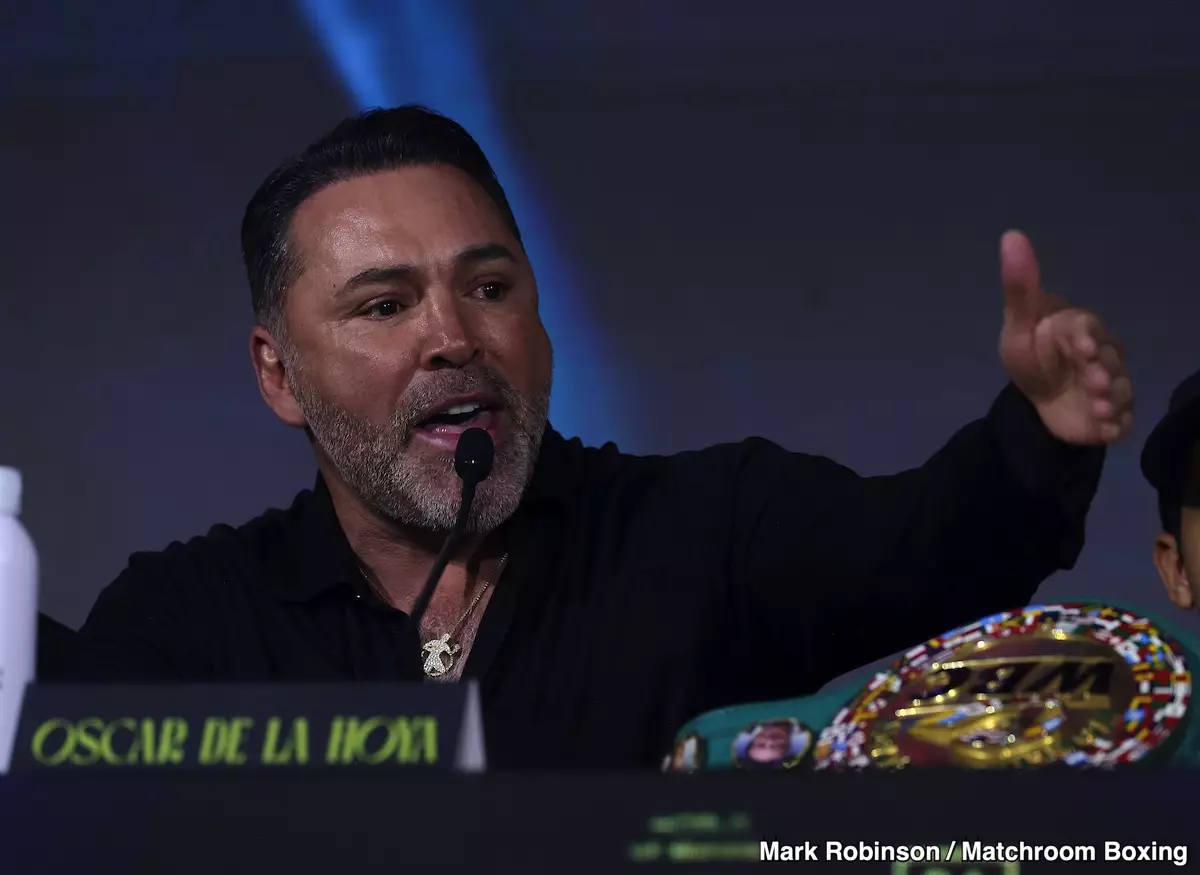As anticipation swells around Manny Pacquiao’s impending return to the boxing ring against WBC welterweight champion Mario Barrios, one cannot help but reflect on the myriad motivations fueling this comeback. Initially cloaked in secrecy, the fight has morphed into one of the most eagerly awaited events in combat sports. However, the underlying question remains: is Pacquiao’s resurgence based on an undying passion for the sport or is he being driven by financial necessity? Recently, Oscar De La Hoya, a veteran of the ring and former foe of Pacquiao, delved into this dilemma during an interview with Fight Hub TV. His probing question—“Why?”—resonates with deeper implications that go beyond mere curiosity.
The Complexity of “Why?”
De La Hoya’s inquiry encapsulates a fundamental truth about the nature of legend in sports. When asked what he would like to know from Pacquiao, he aimed for simplicity, urging Pacquiao to divulge his true motives. The question appears straightforward but carries with it an emotional weight that transcends sportsmanship; it speaks to the essence of why fighters like Pacquiao return to the ring after years of retirement. De La Hoya tentatively speculated that Pacquiao would cite his love for combat and the desire to entertain fans as his reasons. While this perspective paints a romantic picture of a warrior returning to his roots, the reality may be a bit murkier.
Assessing the Financial Landscape
Beneath the valiant facade often associated with fighters, the financial pressures they endure cannot be overlooked. Pacquiao is known for his boundless generosity and has faced significant financial upheaval due to political endeavors and personal spending habits. This raises genuine concerns about whether his comeback might be financially motivated. De La Hoya acknowledges the complexities behind such a decision, suggesting that no esteemed athlete wants to be forced back into the ring out of desperation. Time and again, we have seen seasoned fighters come back only to hurt their legacies; the question of Pacquiao’s financial state looms large over the discourse surrounding his return.
Is Nostalgia Leading the Charge?
It would be disingenuous to neglect the reality that many elite athletes miss the thrill of competition, the adrenaline of the crowd roars, and the ritual of preparation. De La Hoya himself, having faced Pacquiao in his twilight years, can empathize with a fighter’s instinct to crave the spotlight. Pacquiao’s reported excitement at facing a younger, technically proficient opponent like Barrios could indeed stem from a deep-rooted love for the sport. The desire to showcase skill and reclaim glory is inherent in the psyche of every champion—yet when love for the sport collides with financial necessity, the motivations become complicated, creating a unique tension that is both heart-wrenching and illuminating.
The Ramifications of Pacquiao’s Decision
Regardless of Pacquiao’s true motivations, the ramifications of his return reverberate throughout the boxing community. On one hand, his re-entry into the ring can revive interest in the sport, drawing fans who may have drifted away over time. Pacquiao, revered not just for his accolades but also for his captivating persona, has the potential to inspire a new generation of fighters. On the flip side, one must question the sustainability of such comebacks. The grueling pace of modern boxing, coupled with the relentless passage of time, can render a previously invincible fighter vulnerable, shedding light on the sometimes harsh realities of aging in sports.
In essence, Pacquiao’s impending return is wrapped in layers of complexity. Will he step back into the ring as a knight championing his love for combat, or will he become another tragic example of a fighter succumbing to financial constraints? As the countdown to the fight continues, boxing fans and analysts alike will be hard-pressed to reconcile these convoluted threads of motivation, inching closer toward a definitive truth.

